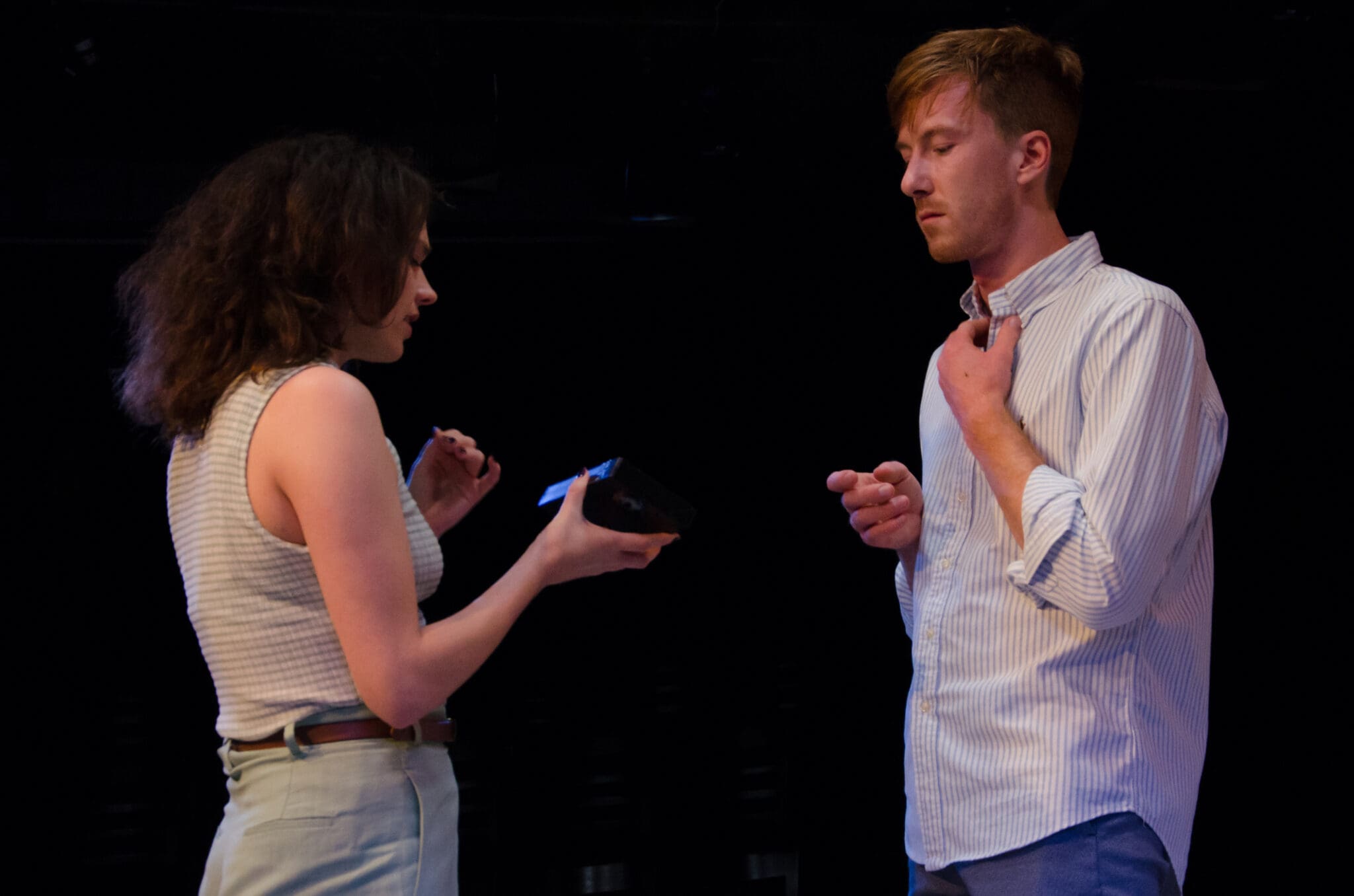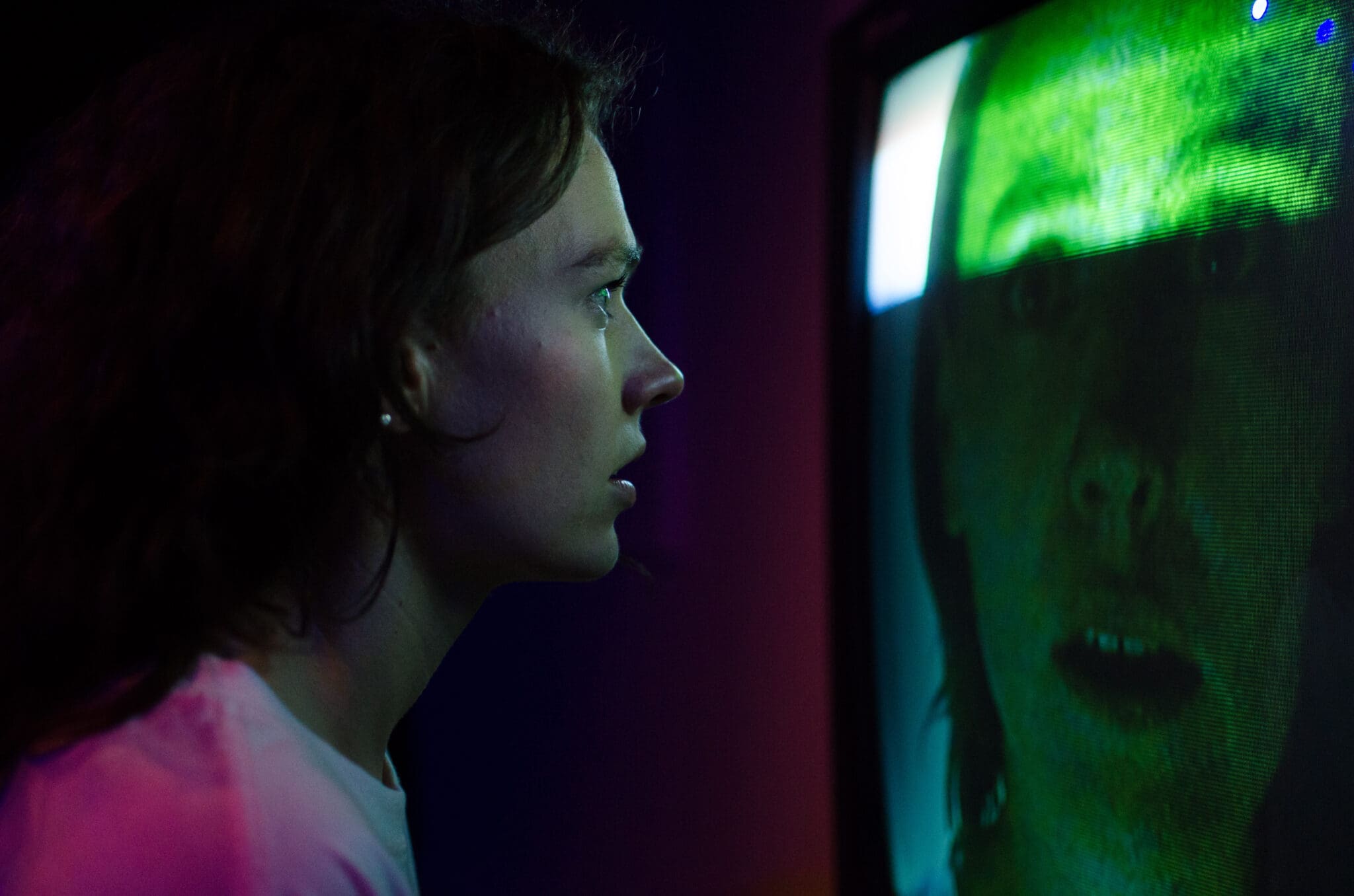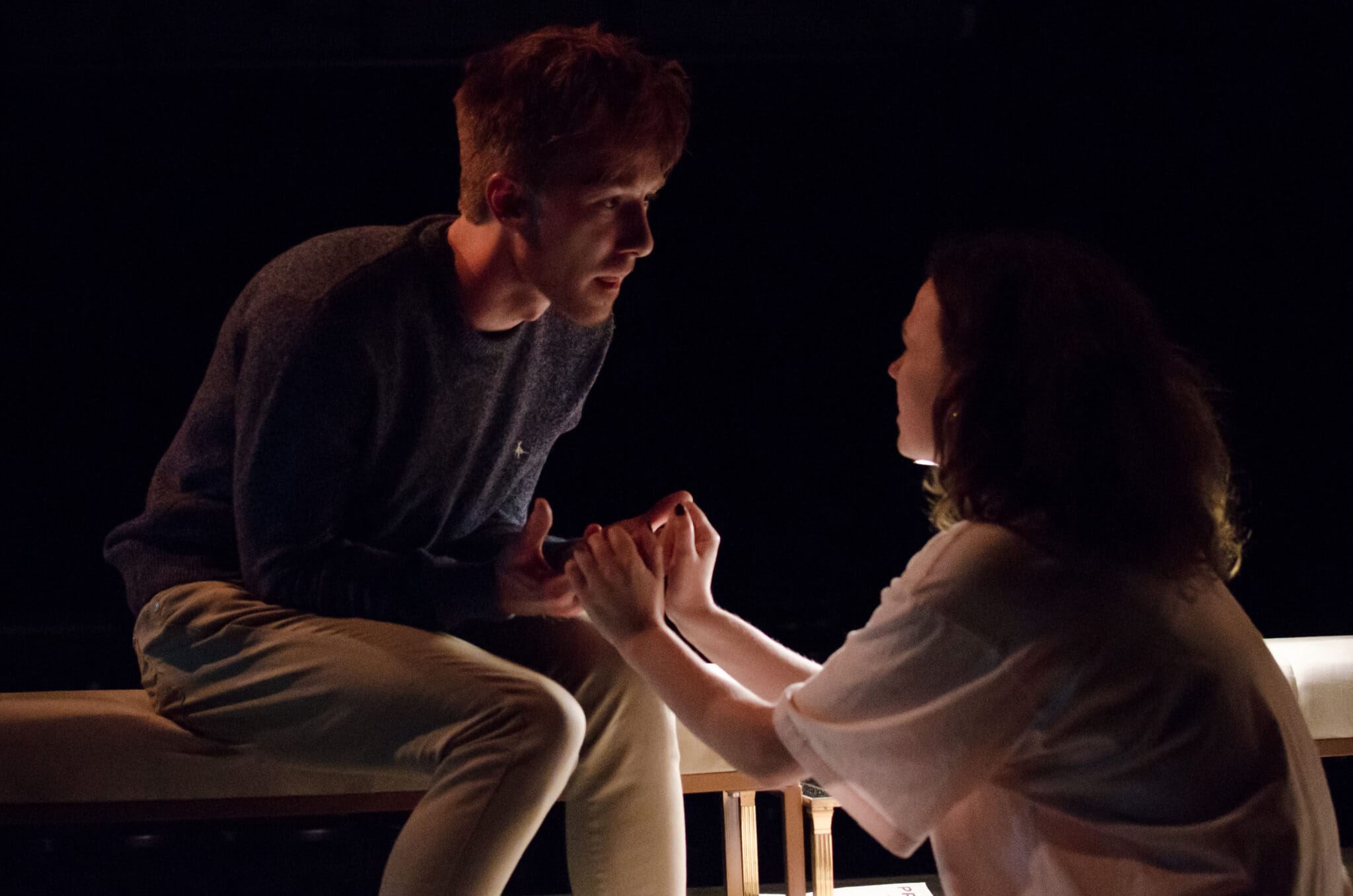The new Australian thriller Videotape, written and directed by Saro Lusty-Cavallari, is KXT’s first production of 2021 after ten months of cancelled shows. Jake Fryer-Hornsby and Lucinda Howes play Daniel and Juliette, a modern couple living in Sydney during the height of the Coronavirus lockdown. Audiences will not find a comfortable escape from their own recent experience of social isolation, as they witness the familiar anxieties and tensions of a relationship tested by months alone together. However, the pair’s true unravelling arises out of the disturbing appearance of a series of VHS tapes that replay intimate the highs and lows of their time together.

“I wanted to make a mystery where the principal characters are hellbent on not getting to the bottom of it,” Lusty-Cavallari writes in his Director’s Note, “Because I honestly believe that we are all very scared of getting to the bottom of anything at the moment. When the simple allure of a good mystery and unpicking the threads that hold together the social equilibrium we rely on go up against each other, what wins?”
Videotape asks its audience to question how we hold people accountable to their actions but heightens this by drawing a parallel between the relationship of the main characters and the videotapes, and the audience’s relationship to the production itself. Moments of vulnerability from the actors quickly allow us to empathise with their position. Howes especially shone in moments when she occupied the space alone, making the stage feel claustrophobic as she battled with her inability to feel safe in her own home. Grace Deacon’s stark and sterile set design made the modern apartment feel strikingly lonely despite onlookers occupying each side of the traverse. However, the characters were let down by some moments of comedy. The humour of Daniel clutching to his childhood felt like a disingenuous attempt to humanise him, which brushed aside the previously displayed emotional immaturity and was quickly erased by his temper. Juliette’s desire to believe the best in him and ignore the warning signs was painful to watch but justified by her clear necessity to feel safe. It was easy to empathise with her position as the one at fault while Daniel never faced any consequences beyond the videotapes, with this dynamic engaging the audience even further in the mystery of their creation. However, a lack in moments of true romantic intimacy led to a lack of chemistry between the pair, meaning the stakes of the relationship ending felt lower than the play presented them to be.

The production’s design effectively worked to draw out elements of the script that kept the audience on the edge of their seats. Sophie Pekbilimili’s lighting design successfully drew out the months of lockdown across an 80-minute show by following the tonal shifts in the couple’s relationship. The flickering of various lights during each play of a tape, beginning with the coloured LED top lights and moving to the onstage lamp in later scenes, introduced an extra layer to the ominous atmosphere, which symbolised the tapes increased presence and influence on the couple’s lives. This worked well alongside the sound design’s appropriately creepy soundscapes and the marking of each scene transition with a flash of white noise. Symbolically this works to implicate the audience into the world of the play, the white noise in between scenes mirroring the tapes’ white noise, giving the impression that we are also voyeurs to the pair’s most intimate moments. Just as we understand that the tapes are meant to force the characters to account for their actions, so must we face that such questions are only asked when actions are made indisputably public. “Videos are scary” because they force us to see the truth of our actions through an objective lens, making what we want to deny undeniable. Thus, Lust-Cavallari successfully asserts his vision of the play’s meaning, though I’m unsure whether the fourth wall break strengthened this thesis. This moment turned the camera on the audience, engaging them directly with the discomfort of being watched, but became a slight gimmick in its repetition which allowed enough time for the audience to get over their initial vulnerability as they caught on to the joke.

Videotape is a fun return to theatre that successfully engages its audience in exploring why we are drawn towards the mysteries of other people’s lives when we shy away from our own ugly truth and forces us to question what we ourselves might look like exposed on T.V.
Videotape runs until Saturday the 13th of February at Kings Cross Theatre





